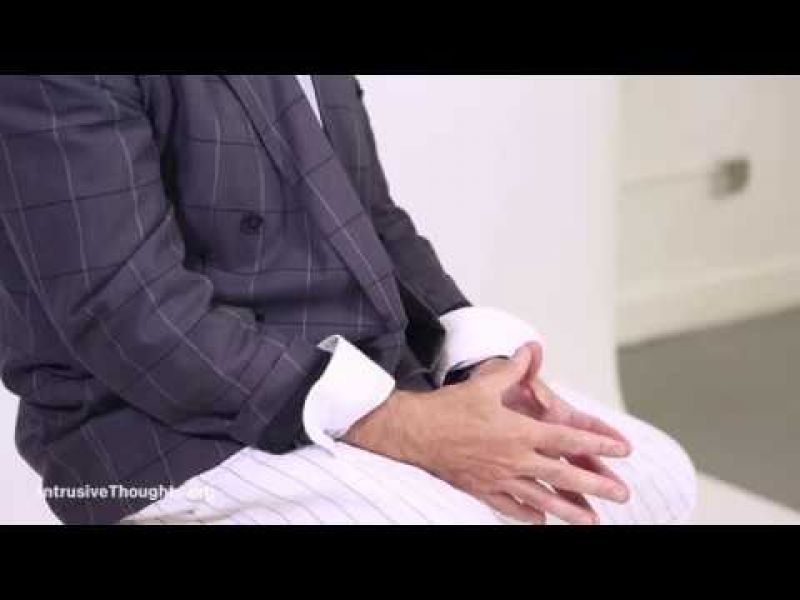Talking Pedophilia OCD with Dr. Steven Phillipson
What is Pedophilia OCD and How Should it be Treated?
Written by Lauren O'Shaughnessy
01 Dr. Steven Phillipson is a licensed clinical psychologist who has specialized in the Cognitive-Behavioral Treatment (CBT) of OCD since 1986.
02 In this video, he defines and discusses Harm OCD. For more info on Dr. Phillipson, please visit: www.ocdonline.com
03 OCD3 is a web series that brings professional perspectives to the OCD community so sufferers can make healthy decisions and lead better lives.

OCD3: What is Pedophilia OCD (POCD)?
Read the full transcript below:
1) What is Pedophilia OCD (POCD)?
Pedophilia OCD is the third subset of OCD in which once again our emotions are an integral part of trying to discern whether we have a problem or not. so a person might look at a child, and find that child to be pretty, or potentially to even be sexually arousing, and then the person that becomes highly distressed at the idea that if i see a child as attractive that that might mean I’m at risk of harming that child.
So pedophile ocd involves often one of two subsets, where a person is afraid they might act out on that attraction. And that children around them might not be safe.
And then the idea that their character is indicted for having any thoughts about children in any way that might be sexual or attractive. The idea that no I’m not going to act on it, but just thinking of children in a sexual way might implicate me as being a deranged twisted freak. and so they become pre-occupied at trying to save their idea by proving that they do not find children attractive.
2) What are common symptoms of POCD?
One of the most common questions that patients ask me that have pedophile ocd is how do they know that they are not actually a pedophile. And it’s not at all a difficult question to answer, because a pedophile sees children’s sexual nature in a very positive and appealing way where they engage in a great deal of conspiring to find ways of being with children in a sexual way. Persons with Pedophile OCD are exactly the opposite. They have associations regarding children in a sexual way, but then react to those associations as if they're are a morale criminal, and are desperately trying to prove whether they are guilty or not, and desperately trying to make sure they would never act in such a way.
3) What are common misconceptions surrounding POCD?
Persons with POCD have a misconception that any person under the age of 18 should never be seen in a sexual way. And so they become very preoccupied with the morality or legality of finding a person below the age of 18 in any way attractive or sexual. And obviously children can be seen as sexual, there is the show toddler’s and tiaras were parents dress up 8 year olds in ways that are very provocative, teenage girls can dress in a very provocative way, so finding these children to be sexual in any way for people with OCD generates a tremendous guilt response or distress that something unhealthy or unusual is happening.
4) How can you help someone suffering from POCD?
Those who might be familiar with someone who has pedophile OCD would want to treat the topic with a great deal of lightness and a lack of relevance. There is nothing about the topic that has any significance or meaning, other than that the sufferers brain has teamed up an energy of distress and threat with this very taboo topic. So to be able to to joke about it, to engage in light banter, to encourage open and transparent disclosure, to really take the skeleton out of the closet as it were, is a very very powerful means of working with someone with this type of OCD. So that by not keeping it secret not pretending as if there is something legitimately problematic, it can be an addict to the treatment goal, which is the irrelevance of the signal emotionally and the irrelevance of the topic.
5) How do you treat POCD?
So treatment for POCD is not too dissimilar as it might be for any other form of OCD regarding using Exposure and Response Prevention. We might have patients purposely noticing children on the street, or noticing children on television programs, or even bringing up photos of attractive little children online, and having them engage in a purposeful viewing of these pictures or noticing of these kids and actually encouraging one’s own brain to have a sexual response. It’s sort of a once again paradoxical way to show that the person is now declaring this question to be meaningless and not relevant to their concerns authentically.
Someone with POCD in recovery would be able to notice children being attractive, even finding some sexual nature in a child under the age of 18 and not react as if their whole world is collapsing around them. They would be go about their natural day, not avoiding the beach, not avoiding children’s events like a bar mitzvah or a confirmation, and really fully participate in living, and accept their brain’s creativity if it has associations of children being attractive.
For more videos from our OCD3 series, head to our YouTube channel here.
About the author
Lauren is the editorial director and cofounder at the Made of Millions Foundation. She has been a part of the team since its launch in 2016. She has been open about her personal struggles with Generalized Anxiety Disorder and social phobia. You can follow her on Instagram at www.instagram.com/internet_lauren.
Support our work
We’re on a mission to change how the world perceives mental health.



















